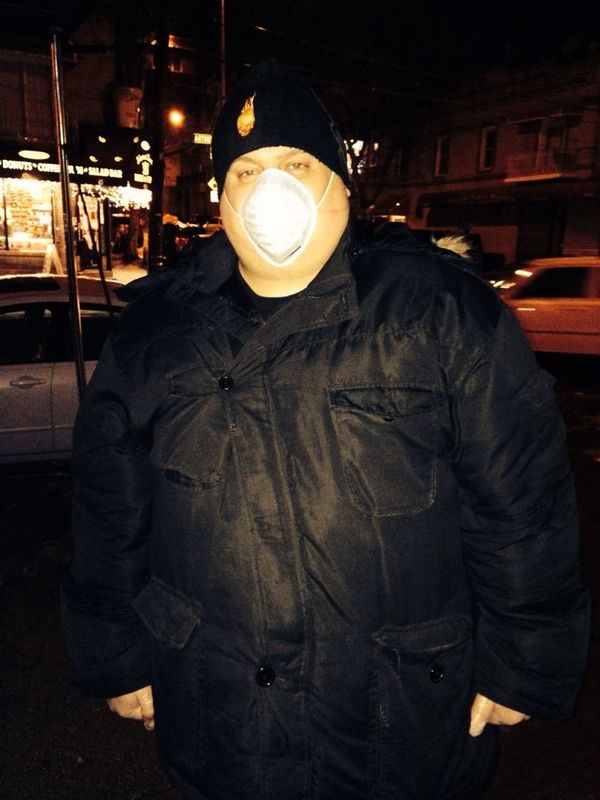By GIRISH SWAMINATH
STAFF WRITER
According to the NYC Department of Health, Fordham University’s Rose Hill campus reported 27 cases of mumps in January and February. Twenty-six of the 27 students suspected of having mumps received vaccinations for the condition, which are required for those attending the university; however, vaccinations do not serve as 100 percent guaranteed protection from mumps.
People with mumps are contagious two days prior to and five days after the outbreak of symptoms. Mumps can be spread through contact with respiratory secretions from an infected person and items utilized by contageous people.

Megan Murphy, FCRH ’14, whose mumps case was confirmed by a doctor at the University Health Center, described her symptoms.
“My face was significantly more swollen [after a few days] and I could barely bite down,” Murphy said. “Throughout the day, I developed a fever and experienced severe chills. I was unbelievably exhausted and slept a good portion of the day. My fever and fatigue went away after three days and the swelling was completely gone after a week.”
Students like Murphy with suspected mumps infections were asked by the university to return home or “were isolated from other residents during the infectious phase of the illness.”
According to a statement issued by the university, it is collaborating with the Department of Health to identify the source of the condition and adequately treat and contain patients with suspected cases of mumps. The statement said:
“Mumps in college-age men and women usually runs its course without any lasting effects. Nonetheless, the university is trying to see what connection there might be among the affected students while stepping up the frequency and intensity of cleanings in communal bathrooms. The student health staff has been in touch with the Department of Health, and the university is following best practices in treatment (mostly palliative) and containment.”
One anonymous senior was satisfied with the way the university handled the cases, considering the fact that many physicians had either never seen a mumps case or had not seen one in decades.
However, she expressed some confusion at the university’s reluctance to diagnose her case as mumps.
“I am satisfied with the way the university is handling it,” she said. “I am a little confused about their refusal to believe it was mumps for my first two appointments when there were other cases that day and one a month earlier, though also it doesn’t really matter because there isn’t really any treatment for it. Any trouble they’re having handling it is understandable to me, because most of them had never seen a case or if they had, they hadn’t for decades.”
Several students expressed displeasure at the fact that the university did not announce the cases earlier, which they claim would have promoted more precaution and potentially prevented some cases from occurring.
“I do think it is suspicious, and I am not fully okay with [the late announcement] but I know that it was just one case and there weren’t more until almost a month later,” Bridget Williams-Kief, FCRH ’14, said. “I just hope that the health center took precautions and quarantined that individual right away.”
“I understand the university would not want to scare the students if only one case of mumps was initially identified and if they were uncertain as to whether or not it would spread,” Avanika Kirpalani, GSB ’14, said.
“However, I do feel that had we been notified at that time, we could have taken precaution sooner, and the students who are now affected could have been mump free.”
The mumps cases have attracted national media attention from news outlets such as the Washington Post, Newsweek, New York Post and NBC New York. Some students believe that the media attention directed at the mumps cases at Fordham was unnecessary, although they felt that the attention did not diminish Fordham’s national reputation.
“I think it is a little absurd the amount of attention we are receiving for this,” Williams-Kief said. “One day, there were more camera crews and reporters on campus than the amount of kids with the mumps; I do not think it is diminishing our reputation because the health center has done their best to notify students about the amount of cases and how best to prevent yourself from getting the virus. Also, they have made sure to send the students home or quarantine those who can’t go home.”
However, some students believe that the media attention is justified, as people in the areas surrounding the university should remain aware of the outbreak and take necessary precautions.
“I believe this media attention is well warranted,” Adrian Whiting, FCRH ’14, said. “If there was an outbreak of any highly contagious and uncommon virus anywhere throughout the city, I’d want to know, so I believe the media attention is appropriate.”
Along with the university, students are unsure of the source of the mumps outbreak but speculate that the outbreak stems from cases outside of the United States.
“My best guess would be that it came from students traveling abroad during winter break,” Whiting said.
“Considering the first case of mumps was found in January, I suspect someone caught it while away during winter break and brought it back with them,” Kirpalani said.
Students with mumps symptoms are encouraged to call the University Health Center for instructions prior to visiting the Health Center.







































































































































































































